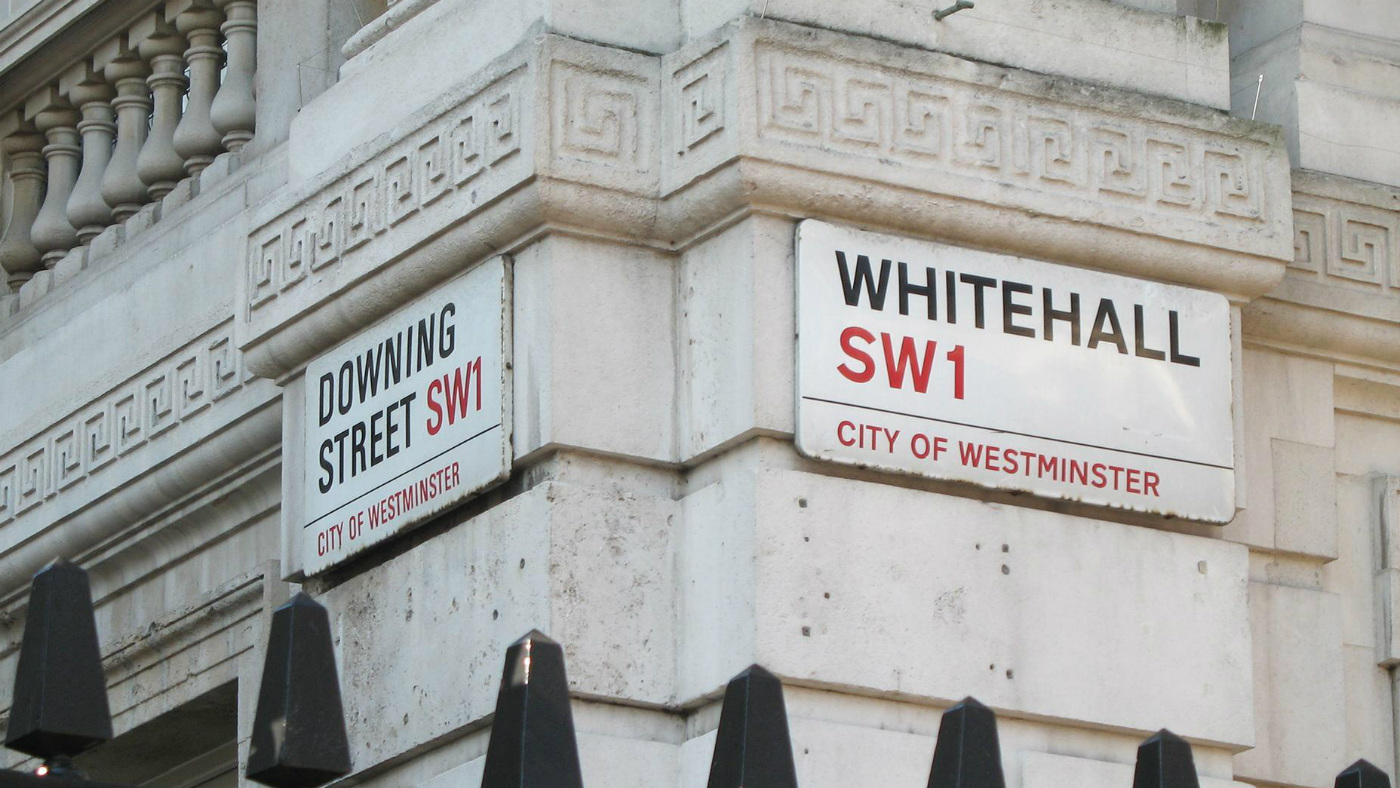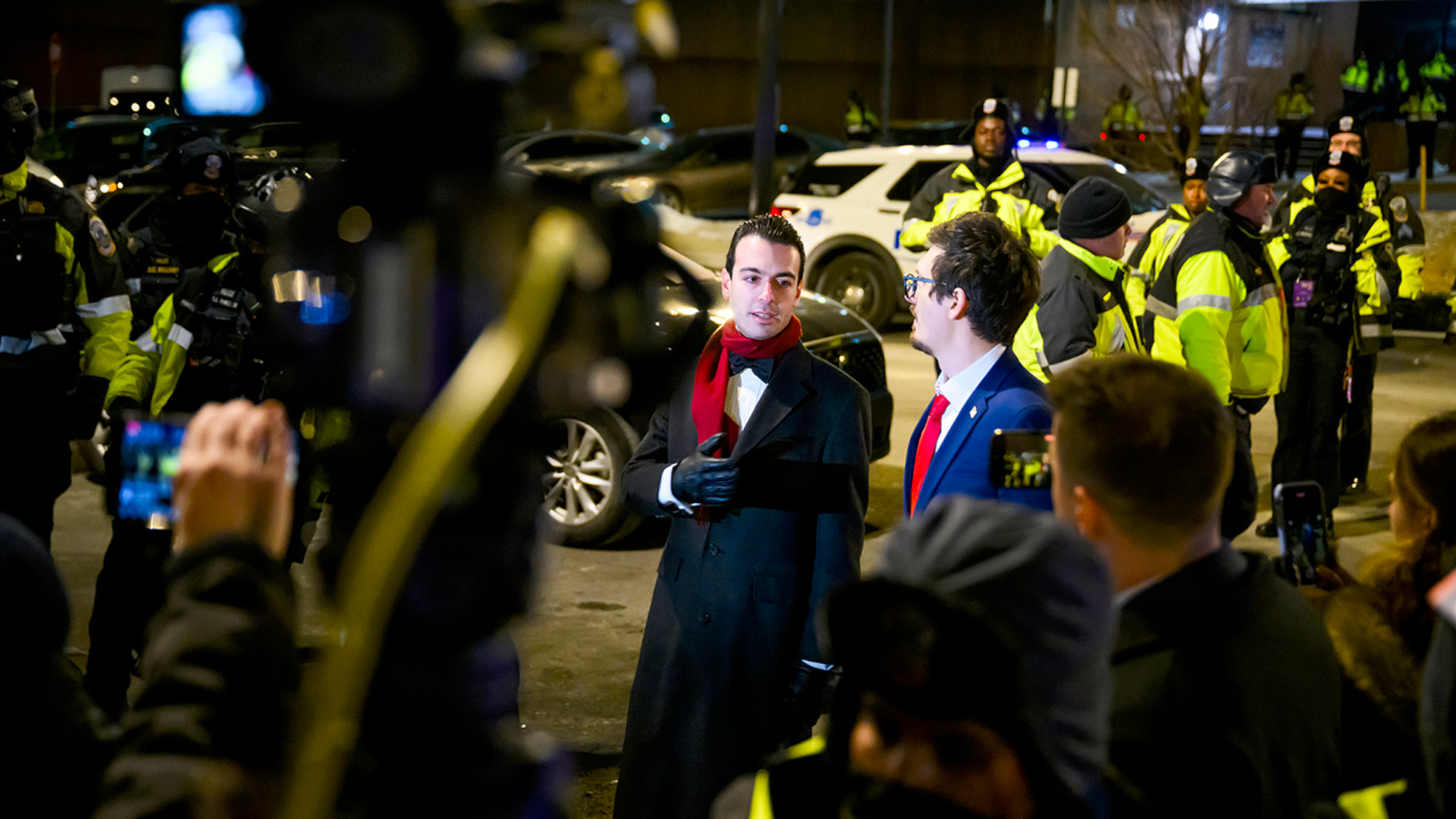Does the civil service have a race problem?
Black and Asian staff ‘experience higher levels of discrimination’, report finds

A free daily email with the biggest news stories of the day – and the best features from TheWeek.com
You are now subscribed
Your newsletter sign-up was successful
Too few black and Asian staff are working in the Scottish civil service, and they are more likely to receive negative appraisals than their white colleagues, government analysis has revealed.
Only 2.4% of officials are from minority ethnic backgrounds, the report found, despite black and Asian people making up 5% of the Scottish population.
Minority ethnic staff also “receive less favourable appraisal markings than their white colleagues”, The Times said, with just 35% of black and Asian employees receiving “highly effective” or “exceptional” rankings compared to 54% of white employees.
The Week
Escape your echo chamber. Get the facts behind the news, plus analysis from multiple perspectives.

Sign up for The Week's Free Newsletters
From our morning news briefing to a weekly Good News Newsletter, get the best of The Week delivered directly to your inbox.
From our morning news briefing to a weekly Good News Newsletter, get the best of The Week delivered directly to your inbox.
The findings come just weeks after The Independent revealed that a black civil servant had received a six-figure settlement over allegations of racial discrimination in Whitehall, raising uncomfortable questions over the civil service’s approach to ethnic diversity.
Internal discrimination
The data released by the Scottish government forced its diversity and inclusion team to admit that “at the current rate of growth, it would fail to reach its goal of making the civil service representative of wider society by 2025”, The Times said.
It also revealed that “the mean ethnicity pay gap between government employees was wider than the gender pay gap” north of the border, with a 7.3% disparity in 2020.
Ethinic minority staff also reported “that they felt undervalued in comparison to their white counterparts”, The Times said, with just 56% agreeing that their responsibilities matched their experience and skills, compared with 75% of white respondents.
A free daily email with the biggest news stories of the day – and the best features from TheWeek.com
The report concluded that black and Asian civil service employees “still experience higher levels of discrimination than the rest of the workforce”, noting that ethnic minority women reported even worse outcomes than their male counterparts.
The publication of the report came just two weeks after a former civil servant in London, Kay Badu, told The Independent that he was held back from promotion, that a manager had used the N-word in front of him, and that he had been asked: “Why do some Black people play the race card when they get into trouble?”
The 36-year-old, who told the paper that he had contemplated suicide during his time working in Whitehall, left his role last year before beginning proceedings against the Cabinet Office at a disciplinary hearing. “The entire ordeal has been emotionally draining, absolutely exhausting,” he said.
“There were times I was getting very little sleep. I was not seeing my friends. I was becoming a recluse, basically. My health was deteriorating and I was eating junk food. I had suicidal thoughts which is something I wouldn’t wish on my worst enemy.
“I would classify myself as a survivor of the Cabinet Office; if you’re Black or Asian, that’s what you do. You don’t go to work to thrive – you survive. We enter the civil service with jet black hair and hope. We leave with grey hair and broken hearts.”
‘Horrifying accounts’
A spokesperson for the Cabinet Office told The Independent: “We condemn racism and bullying in all forms and there are strict measures in place within the Cabinet Office to make sure effective action is taken if complaints are raised.”
But Badu’s public intervention comes after the PCS union, which represents government employees, announced last month that it was raising a complaint with the Equality and Human Rights Commission “after more than 80 staff members in the civil service had complained about being racially bullied”, the paper reported.
The Cabinet Office launched an internal review “into respect and inclusion” in early 2021 following repeated “accusations of racism”, the Daily Mirror said.
“A draft presentation ahead of the review was shared with all staff as part of a series, So Let’s Talk About Race, in a bid to shine a light on experiences of staff”, the paper reported. But the slides revealed “horrifying accounts” of discrimination against black staff.
One staff member said that they did not put a photograph on internal services “because I don't want people to know I'm black before they meet me”. Another said that their team only hired white men and that when they questioned the practice they were told it was because “no one can pronounce” ethnically diverse names.
The review also uncovered that a civil servant had attempted to take their own life following “prolonged racial bullying”, the paper reported.
Badu is demanding an investigation into the Cabinet Office by the Commons’ Public Administration and Constitutional Affairs Committee, telling The Independent: “I’ve had to leave while the culprits are still there, walking around.
“The Cabinet Office almost cost me my life. Why are perpetrators of bullying and racism still in post and being paid taxpayers’ money?”
‘More work to be done’
The civil service acknowledged that staff from ethnic minority backgrounds “remain underrepresented at senior levels”, last year announcing an “ambitious” target to have 13.2% of new recruits to the senior civil service come from an ethnic minority background, up from 5.6%.
Civil Service World (CSW) reported in 2021 that 13.2% of existing civil servants were from ethnic minorities, which is “broadly in line with the wider working population” in which 12.9% of the UK’s working population are from ethnic minority backgrounds.
But “drill a little deeper and it’s clear there’s still work to be done”, the magazine said. Civil servants from ethnic minority groups are “much more likely to be in junior roles”, while just 6.9% of senior civil servants came from underrepresented backgrounds.
The civil service “has work to do to build a route into senior roles” for ethnic minority staff, CSW warned, suggesting that “shifting its focus away from the traditional educational model and embracing professional apprentices” would “truly build diversity into its leadership pipeline”.
-
 Nuuk becomes ground zero for Greenland’s diplomatic straits
Nuuk becomes ground zero for Greenland’s diplomatic straitsIN THE SPOTLIGHT A flurry of new consular activity in the remote Danish protectorate shows how important Greenland has become to Europeans’ anxiety about American imperialism
-
 ‘This is something that happens all too often’
‘This is something that happens all too often’Instant Opinion Opinion, comment and editorials of the day
-
 House votes to end Trump’s Canada tariffs
House votes to end Trump’s Canada tariffsSpeed Read Six Republicans joined with Democrats to repeal the president’s tariffs
-
 How corrupt is the UK?
How corrupt is the UK?The Explainer Decline in standards ‘risks becoming a defining feature of our political culture’ as Britain falls to lowest ever score on global index
-
 The high street: Britain’s next political battleground?
The high street: Britain’s next political battleground?In the Spotlight Mass closure of shops and influx of organised crime are fuelling voter anger, and offer an opening for Reform UK
-
 Is a Reform-Tory pact becoming more likely?
Is a Reform-Tory pact becoming more likely?Today’s Big Question Nigel Farage’s party is ahead in the polls but still falls well short of a Commons majority, while Conservatives are still losing MPs to Reform
-
 Nigel Farage: was he a teenage racist?
Nigel Farage: was he a teenage racist?Talking Point Farage’s denials have been ‘slippery’, but should claims from Reform leader’s schooldays be on the news agenda?
-
 The ‘Kavanaugh stop’
The ‘Kavanaugh stop’Feature Activists say a Supreme Court ruling has given federal agents a green light to racially profile Latinos
-
 Young Republicans: Does the GOP have a Nazi problem?
Young Republicans: Does the GOP have a Nazi problem?Feature Leaked chats from members of the Young Republican National Federation reveal racist slurs and Nazi jokes
-
 ‘Vile, racist’ leaked chats roil Young Republicans
‘Vile, racist’ leaked chats roil Young RepublicansSpeed Read Leaders of Young Republican groups made racist, antisemitic and violent comments in private chats
-
 Taking the low road: why the SNP is still standing strong
Taking the low road: why the SNP is still standing strongTalking Point Party is on track for a fifth consecutive victory in May’s Holyrood election, despite controversies and plummeting support